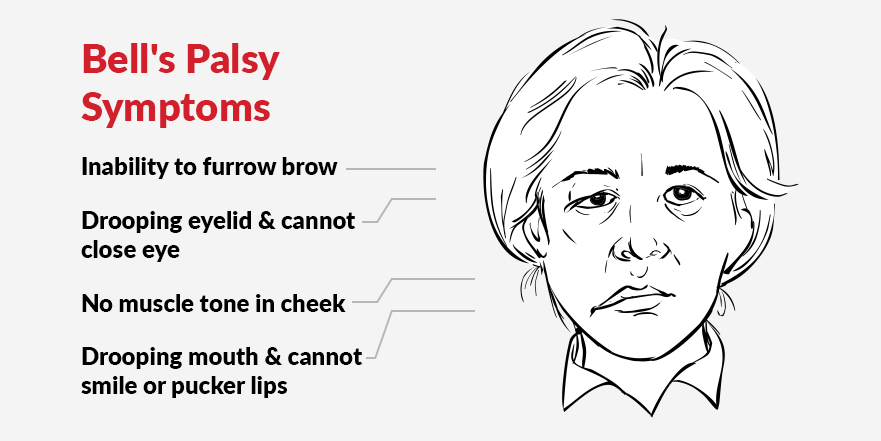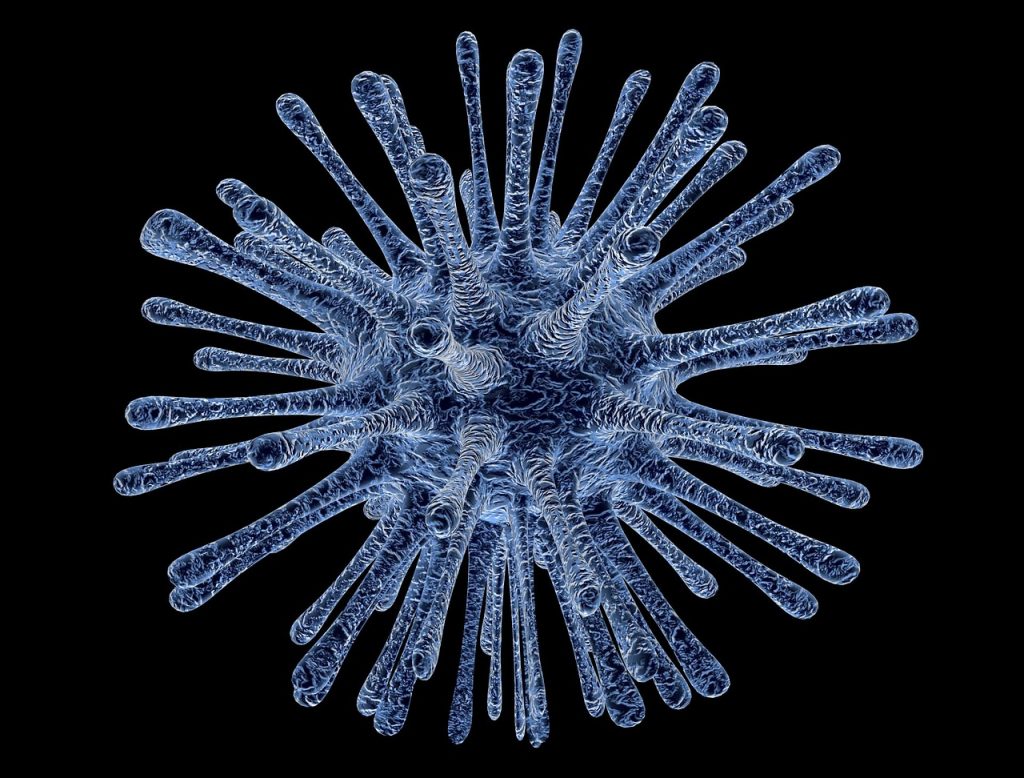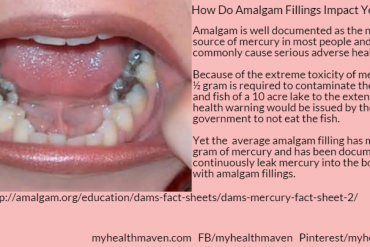
What is Bell’s Palsy?
Bell’s Palsy, also referred to as facial palsy is a condition that can cause partial or total weakness in facial nerves. The first signs can be slurred speech or a crooked smile, as facial nerves are responsible for facial expression. The symptoms can develop very suddenly or develop over a 24-48 hour period.
Other symptoms can include facial tingling, facial numbness and teary eyes. Some also experience pain behind their ears, headaches, sensitivity to sound and change in taste
While science is not certain of its origins it is linked to a variety of viral infections such as Epstein-Barr (mono), herpes simplex. The symptoms usually are resolved within a few weeks and most individuals recover within six months. A small percentage have lifetime and/ or recurring symptoms.

Signs and Symptoms
The signs and symptoms of Bell’s palsy are similar to stroke symptoms. Always seek medical attention immediately to rule out this very serious condition.
People commonly experience numbness in their face, lips or eyes, similar to Novocain after having dental treatment. Some other common symptoms include:
Changes in amount of tears and/or saliva
Decreases ability to taste or loss of taste
Difficulty making facial expressions, such as smiling
Drooling
Facial drooping at corner of mouth
Headache
Inability to close your eyelid
Pain around jaw
Pain behind ears
Rapid facial weakness or facial paralysis
Sensitivity to sound

Causes & Risk Factors
While its cause is unknown at this time, its origins is linked to a variety of viral infections such as:
Coxsackievirus (hand-foot-and-mouth disease)
Cytomegalovirus
Epstein-Barr (mononucleosis)
Herpes simplex (cold sores and genital herpes)
Herpes zoster (chicken pox and shingles)
Influenza B
Respiratory illnesses
Rubella (German measles)
Bells palsy can affect anyone at any age. Some additional risk factors include:
Diabetes
Environmental toxins
High blood pressure
Multiple sclerosis
Myasthenia gravis
Pregnancy, especially during the third trimester
Recent trauma
Respiratory illness, flu, or a cold
Sarcoidosis

Conventional Care
To help make an accurate diagnosis, a medical history is needed included any medications, supplements, travel, recent illnesses, and family history with Bell’s Palsy. Your doctor may request a number of tests such as MRI, EMG or CT tests to confirm any potential nerve damage, as well as to rule out any other potential issues that mimic Bell’s palsy such as stroke, Lyme disease or inflammatory conditions.
After diagnosis you may be prescribed physical therapy, corticosteroids or antiviral drugs.

Natural Support
Acupuncture-Finding an acupuncturist with experience treating Bell’s palsy is your best option. Acupuncture will help to stimulate muscles and nerves to provide much needed relief. Many people experience positive improvement in just 1 or 2 sessions.
Anti-inflammatories-Such as Medizyme can help reduce swelling caused by inflammation.
Biofeedback–Science points to the fact that electromyographic feedback improved the motor function of the facial muscles, helping patients return to normal.
B6-Consider adding foods rich in B6 to your diet such as grass fed beef, sunflower seeds, sesame seeds, free range turkey breast, black strap molasses and chickpeas. B6 is great for a healthy nervous system.
B12-This vitamin is associated with reducing inflammation and nerve growth. A 1995 study combing B12 injections in conjunction with steroids resulted in a complete recovery, which was two weeks shorter than those who only received steroids.
Castor Oil Compress-Warm a small amount of castor oil in your hands and massage into your face. Cover your face with a warm dampened washcloth for 20-30 minutes. Castor oil is used to improve blood flow and support lymphatic function.
Echinacea-This is one of the strongest anti-viral herbs. It helps to fight viral infections that are commonly linked to BP, reduces inflammation and boosts your immune system. Talk to your practitioner about an appropriate dose for you.
Elderberry-This potent anti-viral herb is available in many forms such as syrup, lozenges, teas and pills. Elderberry is proven to reduce cold duration, fight sinus and respiratory conditions-all of these conditions are linked to viral infections.
Physical therapy/Massage– When muscles are paralyzed they can shorten, shrink and tighten. A physical therapist or Masseuse can provide relief to these muscles and can teach you how to exercise and massage the facial muscles to prevent this from happening.
Zinc-This essential trace element should be part of your BP plan. It is a proven treatment for viruses, respiratory illnesses, wound healing and boosting the immune system. Click here to learn more about zinc.
When to See Your Doctor
You should seek medical attention right away when experiencing any type of paralysis to verify you are not having a stroke.
Bell’s Palsy is not caused by stroke, but the symptoms can be similar.
Consider testing for any viruses that may be the root cause of this condition. If tests are positive, talk to your practitioner regarding any protocols that may be available to rid the body of the virus.







